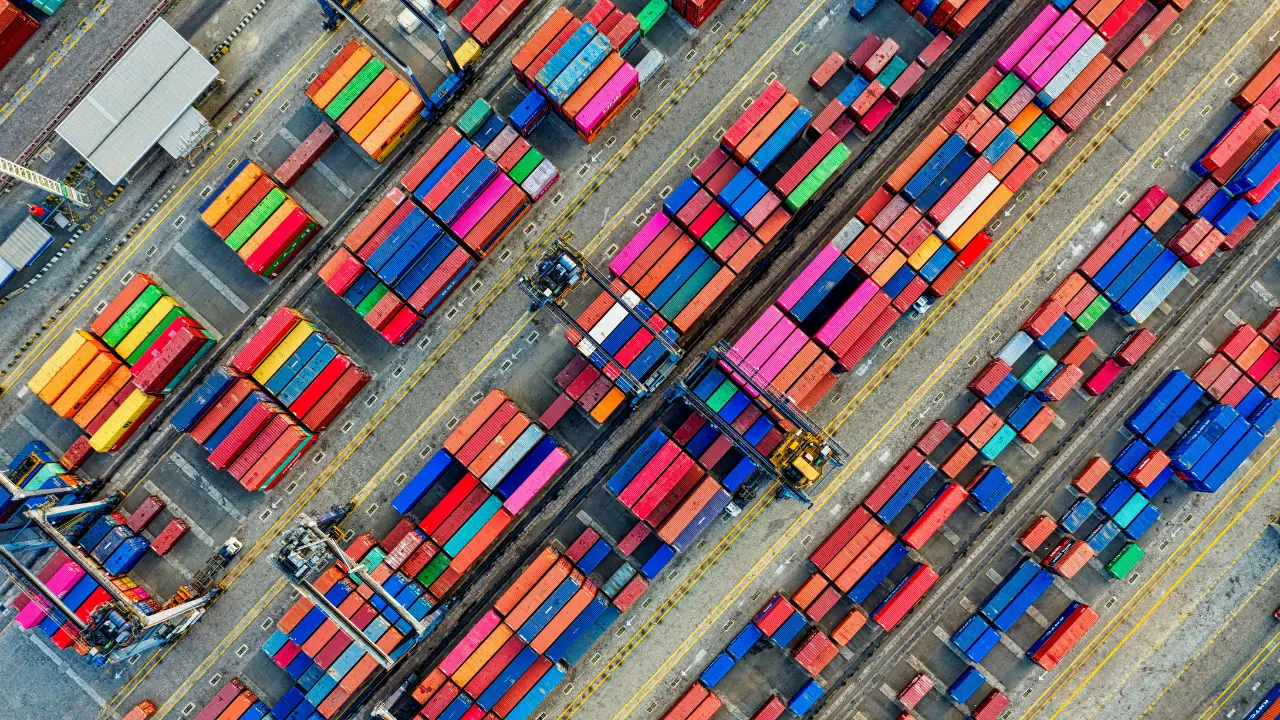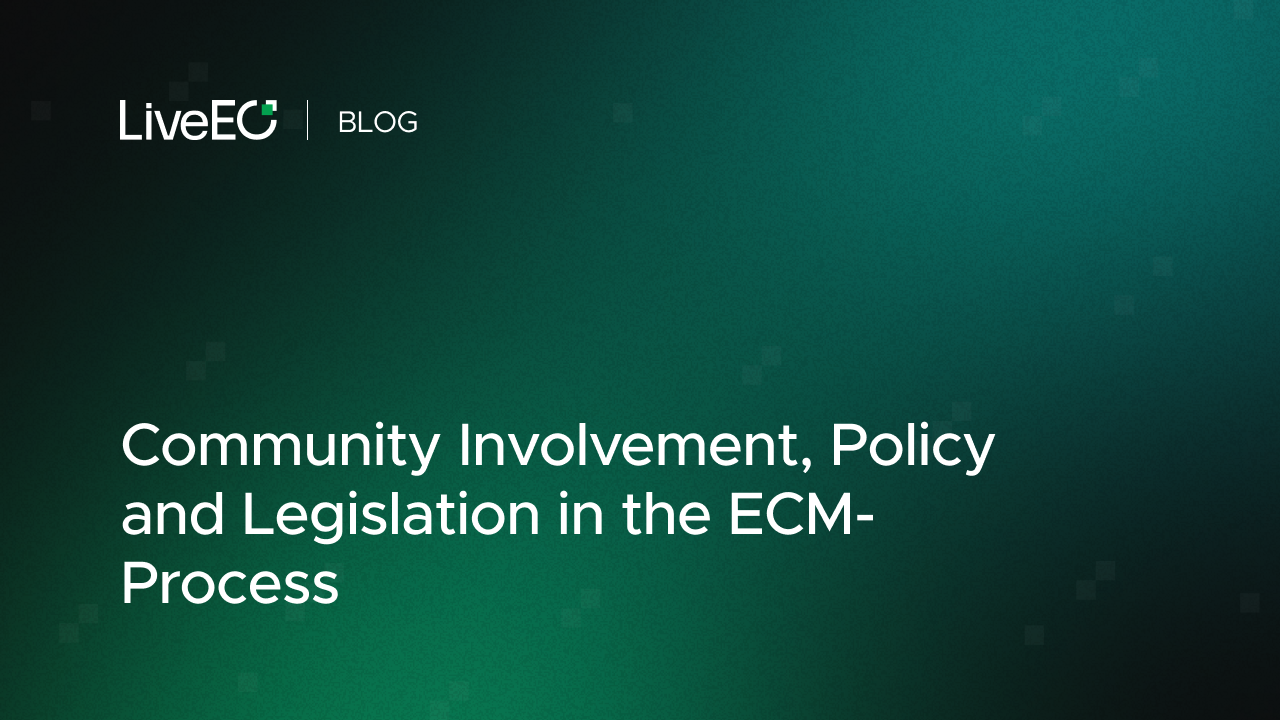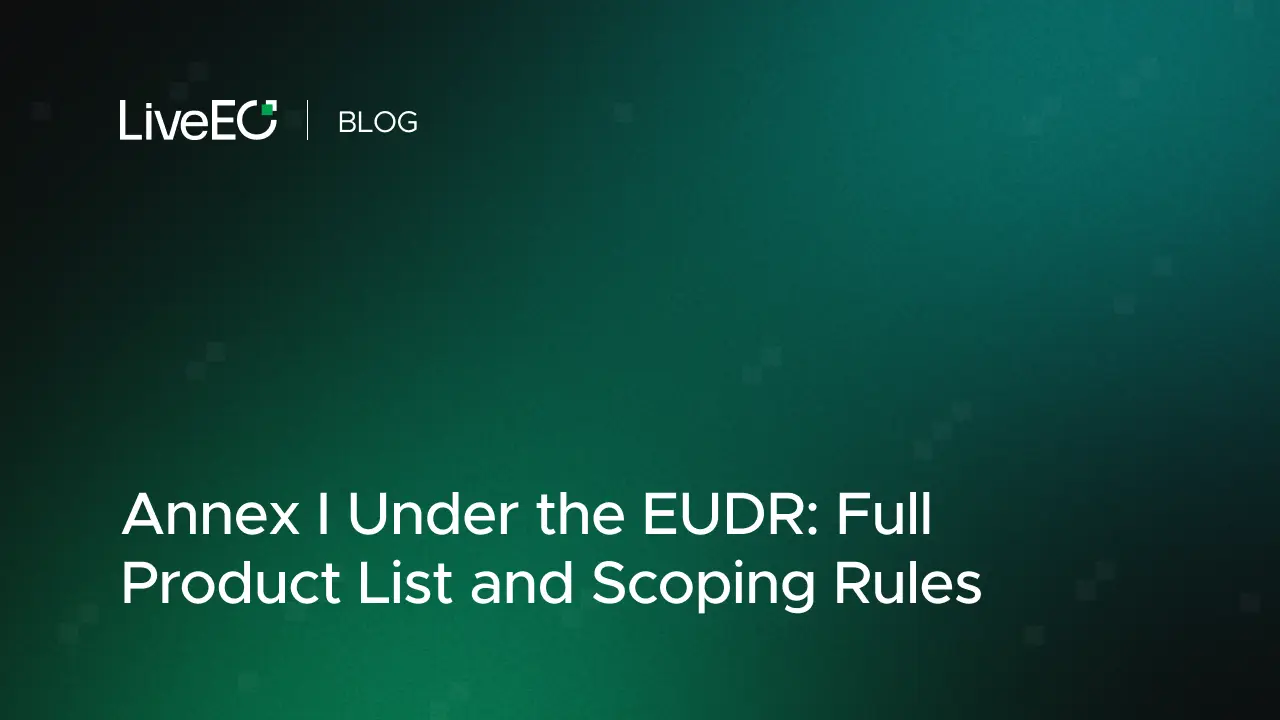
The European Union Deforestation Regulation (EUDR) imposes strict guidelines on businesses to prevent deforestation-linked products from entering the EU market, with non-compliance resulting in hefty EUDR penalties. For instance, a critical requirement for compliance is the due diligence statement, which serves as a formal acknowledgment of adherence to the EUDR, ensuring that products do not contribute to deforestation or forest degradation.
These penalties can include severe fines, loss of market access, and lasting reputational harm, all of which can significantly impact a company’s bottom line.
In this article, we delve into the 10 most critical business implications of failing to comply with the EUDR, providing valuable insights to help companies mitigate these risks.
Understanding these implications is essential for businesses aiming to avoid the costly consequences of non-compliance.
Key Takeaways
- The EUDR expands beyond its predecessor, the European Timber Regulation (EUTR), and imposes stringent due diligence requirements on a wide range of relevant products, including palm oil, soy, coffee, cocoa, and rubber, to prevent deforestation-linked products from entering the EU market.
- Non-compliance with the EUDR can lead to severe consequences, such as financial penalties up to 4% of annual turnover, restricted access to the EU market, and significant reputational damage, which can result in lost consumer trust and investor confidence.
- Promoting deforestation-free products is crucial to combat global biodiversity loss and reduce greenhouse gas emissions, aligning with the EUDR's regulatory compliance requirements.
- The EUDR requires companies to implement comprehensive due diligence systems, including geolocation data collection and risk assessments, to ensure products are deforestation-free. Failing to do so can disrupt supply chains, increase compliance costs, and weaken a company’s competitive position.
- A due diligence statement is necessary to demonstrate compliance with the EUDR, and failing to provide it can disrupt supply chains, increase compliance costs, and weaken a company’s competitive position.
- Risk mitigation measures are crucial in ensuring compliance with the EUDR. These measures, such as gathering more information or conducting independent audits, help identify and address significant risks that products may not meet defined standards.
- Failure to accurately assess deforestation risks through proper risk assessment can lead to the wrongful exclusion of compliant suppliers or, conversely, the inclusion of non-compliant ones.
- Discover TradeAware by LiveEO, an all-in-one solution for complete EUDR compliance. TradeAware helps you navigate the complexities of the regulation, ensuring your business meets all requirements, avoids penalties, and leads in sustainability.
What is the EU Deforestation Regulation (EUDR)?
The European Deforestation Regulation (EUDR) is a crucial EU initiative aimed at preventing deforestation-linked products from entering the EU market.
Expanding beyond the European Timber Regulation (EUTR), the EUDR covers commodities such as cattle, palm oil, soy, coffee, cocoa, and rubber—key drivers of deforestation and forest degradation, which contribute to global biodiversity loss and greenhouse gas emissions.
Under the EUDR, a 'natural or legal person'—referring to any individual or entity involved in the commercial activities of these commodities, including both operators and traders—must ensure their products are deforestation-free, promoting sustainable supply chains globally.
Set to apply from December 30, 2026 (and June 30, 2027, for micro and small undertakings), the EUDR enforces strict due diligence, aligning with the EU’s broader environmental goals, and is poised to become a global benchmark for sustainable trade practices.
Background and Objectives of EUDR
The EUDR was established in response to growing global concerns over the environmental impact of deforestation, which contributes significantly to climate change and biodiversity loss.
The regulation mandates that companies exporting relevant commodities to the EU must conduct thorough risk assessments and submit due diligence statements to prove their products are deforestation-free.
Its primary objective is to halt the import and trade of products linked to deforestation, thereby reducing the EU's contribution to global deforestation.
Unlike its predecessor, the EUDR extends beyond the timber industry, addressing a broader array of commodities that are often sourced from deforested land. By doing so, the EUDR aims to shift global supply chains towards more sustainable practices, encouraging businesses to adopt rigorous due diligence processes to verify that their products are deforestation-free.
The introduction of the EUDR reflects the EU's commitment to leading the fight against climate change and fostering a global market that prioritizes environmental responsibility.
Key Requirements for Businesses
Compliance with the EUDR imposes several critical requirements on businesses operating within or trading with the EU.
Companies must implement robust due diligence systems to trace their products' origins, ensuring that they are not sourced from land deforested after the specified cutoff date, December 31, 2020. This involves detailed supply chain mapping, risk assessments, and the collection of verifiable evidence demonstrating that no deforestation has occurred.
A crucial part of this process is the accurate collection of geolocation data (or postal addresses for micro or small primary operators ), which allows businesses to identify the origin of their products. This location data is essential for verifying that the land has not been subject to deforestation post-2020, and it must be collected and stored securely to ensure compliance.
Businesses are also required to submit due diligence statements, providing proof of compliance with the EUDR.
Read also: Legal Documentation Required for EUDR Compliance
The Top 10 Business Implications of EUDR Non-Compliance
Non-compliance with the EUDR can expose businesses to a wide range of risks that can impact their operations, profitability, and market standing.
Below, we explore the top 10 business implications in detail, illustrating how each can pose significant challenges for companies failing to meet EUDR requirements.
1. Financial Penalties
One of the most immediate and severe consequences of failing to comply with the EUDR is the imposition of financial penalties.
The regulation allows for fines of up to 4% of a company’s annual Union-wide turnover, which can amount to millions of euros for larger businesses.
The maximum fine for serious or repeated infringements can have a devastating impact on a company's financial stability, especially if the company has substantial revenues gained from the EU market.
A prime example of the financial impact such penalties can have is Amazon’s experience under the GDPR, the EU’s General Data Protection Regulation, which governs data privacy and protection.
Under the GDPR, Amazon was fined €746 million for non-compliance related to data processing without proper consent. This massive financial hit forced Amazon to reconsider its data protection practices globally, illustrating the severe consequences companies may face under similar regulations like the EUDR.
Financial penalties are designed to be a significant deterrent and reflect the EU's commitment to enforcing sustainable practices within its market.
Beyond the initial fine, the financial impact can extend further, as companies may need to allocate additional resources to rectify compliance issues, implement corrective actions, and manage legal disputes arising from non-compliance.
2. Restricted Market Access
Non-compliance with the EUDR can result in the loss of access to the European Union, one of the world’s largest and most influential markets.
For many companies, the EU is a critical revenue source, and being barred from this market could severely disrupt their operations.
For example, a palm oil producer found to be sourcing from deforested land could face an EU ban, forcing the company to quickly find alternative markets—often at lower prices—to offload its products.
The EUDR mandates that only products verified as deforestation-free can enter the EU market. Failing to comply with this regulation can lead to an immediate ban, causing long-term damage to a company’s market presence and global competitiveness.
This risk extends beyond direct producers to downstream operators sourcing from non-compliant companies.
While downstream operators benefit from simplified reporting obligations, if they continue to source from suppliers linked to deforestation, they too could face restrictions or bans, highlighting that due diligence is not just a formality but essential for all companies placing affected products on the EU market.
Additionally, losing access to the EU market can strain relationships with partners and suppliers, making it difficult for a company to maintain its position in the global marketplace.
For businesses heavily reliant on the EU, non-compliance could threaten their overall viability and require significant restructuring to regain market entry.
Read also: Solving Geolocation Gathering for EUDR Compliance - The Commercial Network
3. Supply Chain Disruptions
Not complying with the EUDR can cause significant disruptions across a company’s supply chain.
However, it’s not the non-compliance itself that leads to these disruptions but rather a lack of diligence in the process of becoming compliant.
Failure to accurately assess deforestation risks can lead to the wrongful exclusion of compliant suppliers or, conversely, the inclusion of non-compliant ones.
For instance, a chocolate manufacturer that fails to verify that their suppliers are EUDR-compliant may be forced to sever ties with several key suppliers. This can result in supply shortages, delays, and increased costs as companies scramble to find alternative sources.
Such disruptions can ripple through the entire supply chain, affecting production schedules, logistics, and ultimately, product availability in the market.
Additionally, the need to requalify suppliers or reconfigure supply chains can incur substantial costs and time, further straining resources.
In sectors like palm oil and soy, where supply chain complexity is high, these disruptions can be even more challenging to manage.
These disruptions not only impact the company’s ability to meet customer demand but can also damage relationships with partners and erode the overall efficiency and resilience of the supply chain.
For companies operating in highly competitive markets, even minor supply chain disruptions can lead to lost sales, reduced market share, and long-term operational challenges.
4. Operational Disruptions
Operational disruptions are another significant consequence of non-compliance with the EUDR.
Ensuring adherence to the regulation requires companies to implement new processes, technologies, and systems for monitoring and verifying the sustainability of their supply chains.
If a business is found to be non-compliant, it may face immediate operational challenges as it scrambles to address the deficiencies.
For example, a timber company that realizes late that its products are non-compliant with the EUDR may be forced to halt production lines, renegotiate contracts with suppliers, or even recall products from the market.
This sudden halt disrupts operations, causing delays in fulfilling orders and damaging relationships with long-term clients.
Moreover, the need to rapidly adjust operations to meet EUDR requirements can divert attention and resources away from core business activities, leading to inefficiencies and a decline in overall productivity.
Companies may need to invest in additional staff training, upgrade their data collection and analysis capabilities, and strengthen their internal auditing processes—all of which can be time-consuming and costly. These operational disruptions can also lead to delays in product launches, reduced innovation, and an overall slowdown in business growth.
In highly competitive industries, operational disruptions can put a company at a significant disadvantage, potentially leading to lost market opportunities and a weakened market position.
Taking this under consideration, ensuring compliance with the EUDR is not just about avoiding penalties—it’s about maintaining smooth, uninterrupted operations that are crucial for long-term success.
5. Increased Compliance Costs
The diligence obligations imposed by the EUDR require companies to reassess their due diligence systems and ensure that all relevant legislation is adhered to across their value chain.
To meet the requirements of the EUDR, businesses must invest in comprehensive due diligence systems, enhanced data collection methods, and ongoing monitoring processes.
These systems are essential for tracing the origins of commodities, verifying their compliance with deforestation regulations, and ensuring that all documentation is up to date and accurate.
Let’s consider a soy exporter that initially ignores EUDR requirements.
It may finditself in a last-minute scramble to meet regulations, leading to millions in additional and unplanned costs for external audits, new compliance software, and extra staff to ensure future compliance—costs that could have been avoided with earlier planning.
For businesses that do not initially comply, the costs can increase significantly as they work to rectify their compliance status.
This can include hiring external consultants, implementing new technologies, conducting additional audits, and even revising entire supply chain strategies to ensure that they meet EUDR standards.
Moreover, the administrative burden of managing these compliance efforts can lead to higher operational costs.
{{inline}}
Companies may need to dedicate more resources to compliance teams, increase the frequency of reporting, and maintain ongoing communication with suppliers to ensure continuous compliance.
These increased costs can erode profit margins and divert funds from other strategic initiatives, such as expansion, research and development, or marketing.
In the long run, while the initial investment in robust compliance systems is necessary, failure to comply upfront can lead to even higher costs as companies rush to avoid penalties and market access issues.
6. Reputational Damage
In today’s market, consumers, investors, and stakeholders are increasingly concerned about environmental sustainability and ethical sourcing practices.
A company found to be non-compliant with the EUDR risks being associated with deforestation, which can severely tarnish its brand image and erode public trust.
The impact of such reputational damage can be far-reaching.
Customers may choose to boycott products or switch to competitors who demonstrate stronger commitments to sustainability. This loss of consumer confidence can lead to a decline in sales and market share, particularly in markets where environmental concerns are a top priority.
For instance, a soybean exporter that is found to be non-compliant with EUDR standards—having sourced soy from deforested areas in South America—may quickly find itself in the crosshairs of environmental groups.
The resulting negative press coverage and boycott by major buyers in the EU could lead to a significant drop in demand, forcing the company to rebrand and invest heavily in new, sustainable sourcing practices to win back consumer trust.
Negative publicity resulting from EUDR non-compliance can attract the attention of activist groups and the media, further amplifying the damage to the company’s reputation.
For publicly traded companies, reputational issues can also affect investor relations. Ethical investors may divest from companies perceived as environmentally irresponsible, leading to a drop in share prices and a decrease in market capitalization.
This can also make it more challenging for the company to raise capital or attract new investment in the future.
The risk of reputational damage should be one of the powerful motivators to ensure full compliance with the EUDR, as the long-term costs of a tarnished brand can far exceed the immediate penalties for non-compliance.
What is more, rebuilding a damaged reputation can be a long and costly process, requiring significant effort in public relations, sustainability initiatives, and transparency, making full compliance a necessity.
Read also: Publishing Houses and EUDR – Challenges and Solutions
7. Legal and Regulatory Risks
Non-compliance with the EUDR exposes businesses to significant legal and regulatory risks, which can profoundly impact their operations and financial stability.
The EUDR mandates strict adherence to its guidelines, and failure to comply can trigger legal actions from both the European Union authorities and affected stakeholders, including NGOs. While these organizations cannot impose fines beyond the standard penalties, they can initiate lawsuits that compel compliance or seek remedies for environmental harm, leading to costly legal battles.
These lawsuits often attract negative media attention, further harming the company’s reputation and leading to additional regulatory scrutiny. Even if these cases do not result in financial penalties directly imposed by NGOs, the resulting settlements or judgments can significantly strain a company’s resources.
Regulatory risks also include increased scrutiny and audits from EU authorities. Once flagged for non-compliance, a company may be subject to more frequent and rigorous inspections, disrupting operations and leading to additional compliance costs.
Moreover, repeated violations or failure to rectify compliance issues can result in the suspension of the company’s right to trade in the EU, effectively cutting off access to a major market.
Legal and regulatory challenges can also lead to long-term consequences, such as a tarnished relationship with regulatory bodies, increased compliance burdens, and potential disqualification from public procurement contracts within the EU.
Read also: A Comprehensive Guide to Mastering EUDR Geolocation Data Collection
8. Social and Ethical Implications
Non-compliance with the EUDR not only has financial and legal consequences but also significant social and ethical implications.
The regulation is rooted in the broader goal of promoting sustainable development and protecting vulnerable ecosystems from the destructive effects of deforestation.
When companies fail to comply with the EUDR, they may inadvertently support practices that harm local communities and degrade natural habitats.
One of the key social implications is the potential impact on smallholder farmers and local communities that rely on the land for their livelihoods. If a company is found to be sourcing products from deforested areas, it could contribute to the displacement of these communities, leading to social unrest and economic hardship.
However, it's important to recognize that the impact of non-compliance may vary depending on the position of suppliers within the supply chain. For example, while primary suppliers might directly face exclusion due to non-compliance, downstream suppliers, such as those in later tiers, might experience indirect consequences that could still lead to economic challenges and social instability in their communities.
Furthermore, the exclusion of smallholder suppliers from the supply chain due to non-compliance could exacerbate poverty and inequality in these regions, particularly if these suppliers lack the resources to meet the EUDR’s stringent requirements.
Ethically, non-compliance with the EUDR can lead to a perception that the company is indifferent to environmental and social responsibility. This can damage the company’s standing with stakeholders who prioritize ethical business practices, including consumers, investors, and partners.
In a world where corporate social responsibility (CSR) is increasingly tied to business success, failing to adhere to ethical standards can result in a loss of goodwill and support from these important groups.
Moreover, the ethical implications extend to the broader environmental impact.
Non-compliance contributes to the ongoing destruction of forests, which are vital for carbon sequestration, biodiversity, and the overall health of the planet.
Companies that do not take their environmental responsibilities seriously may find themselves at odds with global efforts to combat climate change, further alienating stakeholders who expect businesses to play a proactive role in environmental stewardship.
9. Loss of Competitive Advantage
Non-compliance with the EUDR can lead to a significant loss of competitive advantage in today’s sustainability-focused market.
Consumers increasingly favor companies that adhere to environmental regulations, and non-compliant businesses risk losing market share to competitors who meet these standards.
For example, a coffee company that is slow to comply with the EUDR may allow a competitor to market itself as more environmentally friendly and ethically sourced.
As consumers shift towards the more sustainable option, the non-compliant brand may lose market share and struggle to regain its competitive edge. This can result in reduced brand loyalty and missed opportunities for premium pricing.
Non-compliant companies may struggle to form partnerships with other businesses that prioritize sustainability, limiting growth opportunities. They also face challenges in maintaining transparent and resilient supply chains, which can further erode trust with customers and investors.
In contrast, companies that proactively comply with the EUDR are better positioned to adapt to future regulations, innovate, and maintain a strong market presence.
They can also actively advertise their commitment to sustainability, using their compliance as a selling point to attract environmentally conscious consumers and differentiate themselves in a competitive marketplace.
10. Long-Term Strategic Risks
Failing to comply with the EUDR can severely weaken a company’s long-term strategic position.
Companies that delay aligning with sustainability standards risk becoming marginalized in the marketplace.
For example, a reactive approach to EUDR compliance may prevent a food company from leading in sustainability initiatives, limiting its influence on industry standards and consumer preferences.
This hesitation can also deter environmentally-conscious investors and alienate future consumers, eroding brand equity over time.
Additionally, non-compliance may hinder market expansion and reduce partnership opportunities, isolating the company further. In summary, without proactive EUDR compliance, a company’s ability to innovate, attract capital, and maintain customer loyalty is significantly compromised, leaving it vulnerable to more forward-thinking competitors.
How to Mitigate the Risks of EUDR Penalties
Mitigating the risks of EUDR penalties requires a proactive and comprehensive approach to compliance, ensuring that your business not only meets regulatory standards but also aligns with broader sustainability goals.
The key to avoiding the severe consequences of non-compliance we discussed above is to implement robust due diligence processes, maintain transparent supply chains, and leverage advanced technology solutions designed specifically for EUDR compliance.
One powerful tool that businesses can utilize to address these challenges is TradeAware by LiveEO. TradeAware is an advanced compliance solution that offers precise satellite-based analytics to monitor and verify deforestation activities across your supply chain. Here’s how TradeAware can help mitigate the risks associated with EUDR penalties:
1. Enhanced Due Diligence and Monitoring
TradeAware enables businesses to conduct thorough due diligence by providing AI-driven analytics based on high-resolution satellite imagery. This ensures accurate detection of deforestation, allowing companies to verify that their products are not sourced from deforested land after the 2020 cutoff date. By using TradeAware, businesses can confidently submit due diligence statements, reducing the risk of fines and legal actions due to non-compliance.
2. Transparent and Resilient Supply Chains
Maintaining a transparent supply chain is crucial for EUDR compliance. TradeAware’s geolocation data collection features allow companies to trace the origin of their commodities with precision, ensuring that every step of the supply chain is accounted for. This transparency not only helps in meeting regulatory requirements but also builds trust with suppliers, customers, and investors, safeguarding against reputational damage.
Sign up to TradeAware Lite and start your compliance journey for free.
3. Proactive Risk Management
TradeAware’s monitoring capabilities provide businesses with the tools to detect potential compliance issues before they escalate. By identifying deforestation risks early, companies can take corrective actions to prevent non-compliant products from entering the market. This proactive approach helps avoid the operational disruptions and supply chain challenges that can arise from sudden compliance failures.
4. Streamlined Compliance Integration
TradeAware is designed to seamlessly integrate with existing supply chain management systems, making it easier for businesses to incorporate EUDR compliance into their daily operations. The platform’s API capabilities allow for automated compliance checks, reducing the administrative burden and compliance costs associated with manual verification processes.
Conclusions
Navigating the complexities of the European Deforestation Regulation (EUDR) is crucial for any business involved in the trade of commodities within the EU market.
Non-compliance with the EUDR can lead to severe penalties, including substantial fines, restricted market access, and long-term damage to a company’s reputation and competitive position. The risks are clear, but so are the pathways to compliance.
By understanding the top 10 business implications of EUDR non-compliance, companies can better appreciate the importance of proactive measures.
Implementing robust due diligence processes, ensuring supply chain transparency, and leveraging advanced technologies like TradeAware are essential steps to safeguard against the significant risks posed by non-compliance.
In essence, EUDR compliance is more than a regulatory obligation; it’s an opportunity to enhance your business’s resilience, reputation, and long-term success.
By taking the necessary steps to comply with the EUDR, businesses can protect their operations, maintain market access, and build a foundation for sustainable growth in a rapidly evolving global landscape.











